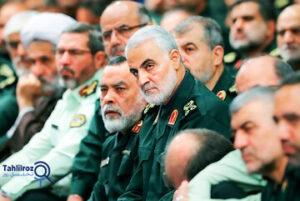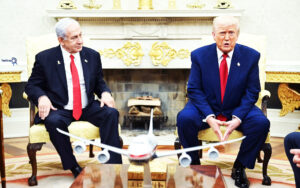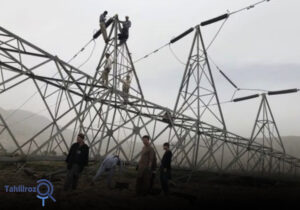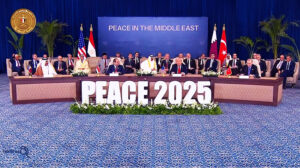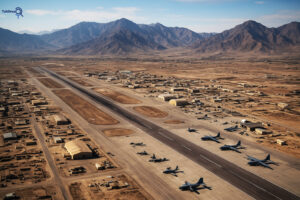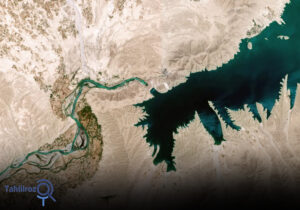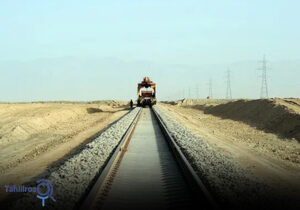Afghan economy under Taliban’s rule
Bad economic conditions, increasing unemployment rate, imposing some sanctions, banning women and girls from working in official institutions, illegal immigration to neighboring countries, and increasing inflation rate despite the increase in the value of the Afghani currency, are part of the realities of Afghanistan after August 2021.
The World Bank published a report on the economic situation of Afghanistan on July 31, 2023. Reducing inflation, increasing the value of the Afghani against foreign currencies, stabilizing domestic prices, improving the condition of Afghan banks, and the relative increase in exports are among the most important and prominent topics of this report.
After the publication of this report, many doubts have been raised about its authenticity, but the reality is that the Taliban’s economic actions are admirable.
-
Afghan economy after resurgence of the Taliban
Although the Taliban gradually distanced itself from terrorist groups during its 20-year war, there was still a fear of this group returning to its past approach and colluding with terrorist groups. But contrary to this expectation, the Taliban entered the sphere of politics and governance in Afghanistan in a different way.
This time, the Taliban adopted an economy-oriented approach in foreign policy. The Taliban’s behavior in the past two and a half years has proven that this group actually sticks to economic-oriented foreign policy. Naturally, the adoption of such an approach by the Taliban resulted in a warm welcome from the international community, especially the neighbors.
This approach caused some countries to establish close relations with the Taliban government, and send their officials to Kabul to expand political and economic relations, and also invite Taliban officials to visit their country.
As required by their economy-oriented foreign policy, Taliban officials have made numerous economic visits to other countries in the past two and a half years, with the two visits of Deputy Prime Minister for Economic Affairs, Mullah Abdul Ghani Baradar, to Turkey and Iran being the most important of them.
Some economic measures of the Taliban
1. Full collection of taxes and custom revenues: Undoubtedly, taxes and customs revenues are one of the main sources of government income and the path to economic self-sufficiency of governments. Afghanistan could not benefit enough from this fixed source of income in the twenty years of the republic.
Most of the small and big taxpayers avoided paying taxes, and the government did not have the necessary will to collect taxes. Afghanistan’s customs were also a possession of the government. After the Taliban came to power and foreign aid was cut off, the Taliban was able to provide a significant part of the national budget by fully collecting the taxes and customs revenues of Afghanistan.
2. Expansion of trade and economic interactions with neighboring countries: It is clear that the proximity of the route and having a common border, are commercial advantages. This is why economic experts consider trade with neighbors to be useful and extremely advantageous.
Realizing this importance, since the beginning of their rule over Afghanistan, the Taliban put the expansion of economic and commercial interactions with neighboring countries, including Iran, Uzbekistan, Turkmenistan, China, and Kazakhstan, at the top of their economic policy to improve Afghan economy.
One of the important projects is the Khaf-Herat Railway Project, which is a 225km-long cross-border railway between Iran and Afghanistan, linking eastern Iran to western Afghanistan. It is a very important project that will actually connect many important provinces of Afghanistan to each other and even has the ability to provide an opportunity to exchange goods with our neighboring countries, and as a result to expand and improve Afghan economy.
3. Paying attention to national projects and infrastructures: The important and fundamental role of infrastructures in the economic self-sufficiency of countries is undeniable. Electricity, transportation routes, railways, national industry, and the strengthening and updating of agricultural infrastructure are among the most important needs for the economic growth of Afghanistan, which, unfortunately, was neglected by the government in the twenty years of the republican era despite sufficient budget.
However, during the two years that have passed since the Taliban rule, they have shown well that the construction of infrastructure is important to them, as examples of which are the Khaf-Herat railway line, the Wakhan Corridor, the Qosh Tepa Canal, solar power projects in Kabul and some other provinces, the activation of the Spenzar company in Kunduz, the opening of the largest drug production factory in Kandahar, etc.
4. Mining: Afghanistan is one of the countries with high mining capacity that can provide all the country’s economic needs for years. Unfortunately, in the last twenty years, mines, like customs, were in the hands of the powerful and the economic mafia.
After the Taliban came to power, the mines are completely under the control of the government, and because of this, a significant part of the government’s economic needs are provided, which is a good and admirable thing.

-
Will the efforts of the Taliban succeed?
The fact is that Afghanistan, neither in terms of geography nor in terms of economic capacities, at least in the current situation, does not have the ability to establish commercial and economic relations with countries beyond the region and neighboring countries. Because from a geographical point of view, it lacks borders and water ports, and in terms of economic capacity, it is not developed and industrialized, and it is considered one of the very poor countries.
Therefore, any political system that wants to be successful in the expansion and growth of Afghan economy must tie the interests of this country with the interests of the region and neighboring countries.
The first thing that can be taken from the economic policies of the Taliban is that they have learned a good lesson from the past. They are well aware of the geographical limitations and the lack of water and land ports and also the economic capacities of Afghanistan.
That is why they have paid all their attention to the regional and neighboring countries in the past three years, despite the western pressures and sanctions and political pressure.
Therefore, it can be said that the approach of the Taliban government in interacting with other countries through economic issues has been effective and has been able to increase the political interaction of countries with the Taliban government. However, as long as the Taliban government continues to violate international law (such as women’s rights), it is unlikely that any country, even those that interact with the Taliban government, will recognize it. An improved Afghan economy needs recognition.

Mohsen Shahrafiee, Expert in Afghanistan issues


